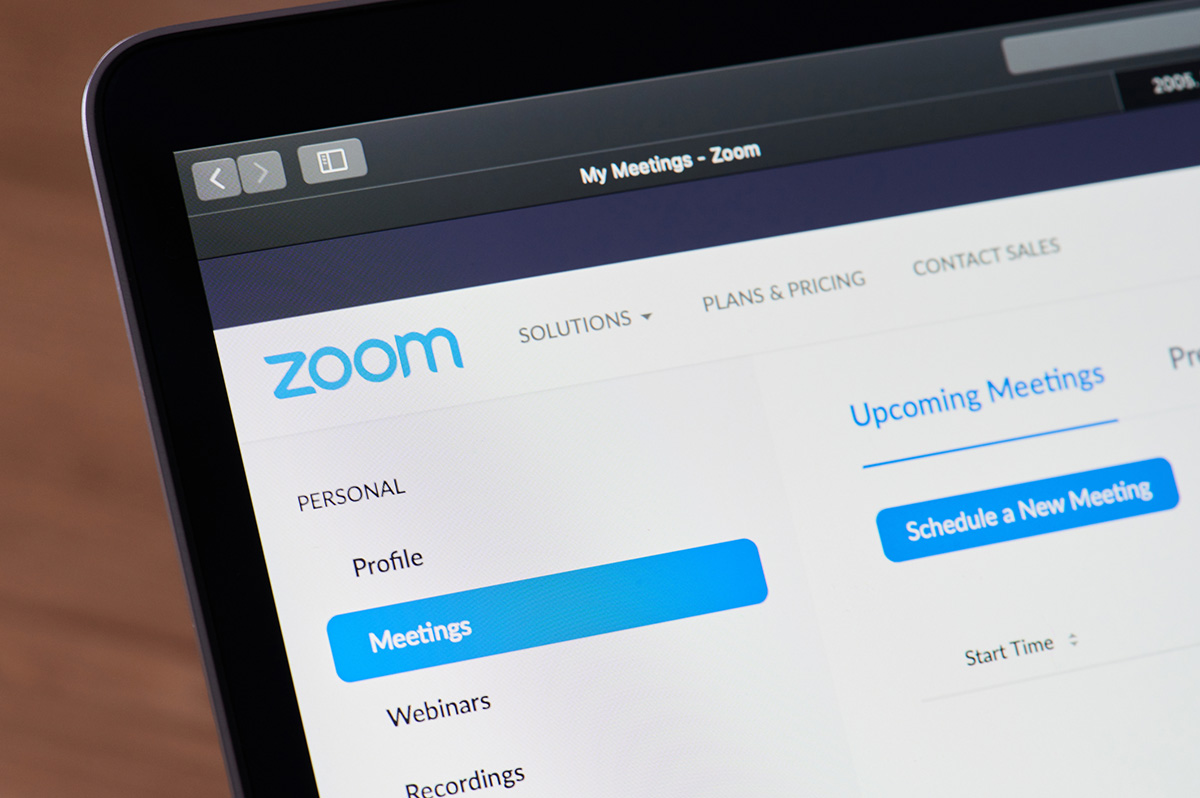Do you find video meetings strangely exhausting? You’re not alone. Zoom fatigue is real, even for people without hearing loss or tinnitus.
Some clever neuroscience bods have offered their thoughts on why this might be so – and it really makes sense:
The sound is different
The voices we hear through our laptops, phones or tablets often sound unnatural and unbalanced. Some people will be speaking into their laptop mic, others will have a headset on. You’ll get whisperers and shouters. Your poor brain is trying to moderate and make sense of all this. And, of course if you have tinnitus or hearing loss (or both) you face an even greater challenge.
Competing sounds
Many of our colleagues are working in home offices, so their voices are competing with the sounds from the neighbourhood, the dog barking, or the kids fighting in the next room. That makes our brain work even harder to isolate the speech of the person we want to hear.
Also, technology doesn’t discriminate between the sounds that it picks up during video calls, so we might hear meeting participants swigging a mug of tea, eating a sneaky biscuit, tapping at the keyboard, and rotating in a squeaky chair. That can be distracting for everyone, but really irritating if the sound triggers your tinnitus.
It’s not all about the words
When we have hearing loss or tinnitus we can rely a lot on non-verbal cues in conversations. We watch for facial expressions, such as pursed lips, raised eyebrows, a frown, or a smile. That’s really hard to spot if there are many of you on a call, and you are looking at what appears to be a grid of passport photos on your screen.
We also miss cues that help us understand when to engage in the meeting, such as someone taking a breath before speaking or raising a pen or a finger to interject. So, we find ourselves talking over other participants, which can be embarrassing (I speak from much personal experience here!)
Technology fails
Glitchy broadband or sound lags can create stress and fatigue even if you’re meeting with just one person. If you need to combine sound and lip reading to understand speech it can be near impossible to make sense of what’s being said.
So how can we reduce zoom fatigue for ourselves, our friends and colleagues in this new world of online meetings? Here are some tips we can all use:
Meeting etiquette
- Assign a chair for the meeting – someone who determines the order in which people speak.
- Assign someone to mute and unmute people so that the inevitable sounds of working from home don’t distract the rest of the participants.
- Build in breaks. 1-hour zoom sessions are long enough. By that point our eyes need a break even if our bladders don’t! 5 minutes is all most people need to grab a drink, settle the kids or nip to the bathroom.
- Ask for captions. Google Meet has automatic captions which I have used and find very useful. Zoom is trying to provide captions but, in my experience, they can be hit and miss, and are slow. You can also ask your employer to provide a Speech To Text Reporter (STTR) or live captioner. They can potentially get funding for this via Access to Work (UK).
Facial expressions and body language
- Make sure your face is well lit.
- Position yourself so the camera shows your upper body and participants can see your gestures.
- Move your camera so it is at eye-level. This creates the impression that you are looking at the other participants directly.
- Acknowledge what the speaker is saying with head nods (particularly important if you are on mute).
- Look interested! It can be easy to let our faces slide into a passive expression (or worse), especially if it’s a long meeting.
- Smile! It offers great encouragement to the speaker, plus has the added benefit of boosting your mood too.
Claim your space
There are ways to make your home working environment more video-friendly without having to stick egg cartons all over the walls:
- Close the door to keep pets out (this can be a challenge with my dog who then barks demanding to be let in!).
- Reduce the reverberation (echo) of your sounds and others’ voices with soft furnishings. Books also work well at absorbing sound (if you don’t mind your colleagues scrutinising your reading habits).
- Teach kids to learn that a closed door = do not disturb, but accept that for some this might be a steep learning curve!
Self-care
Many of my clients tell me that their tinnitus increases temporarily during and immediately after video meetings. This can be caused by the stress and challenge of the meeting itself as well as the sound experience during the call. If you have any element of control as to when you participate in video meetings try and create significant gaps between them, especially if you have several a day. Your tinnitus will thank you for it.
For many of us having meetings, socialising and learning by Zoom isn’t going away any time soon. So it makes logical sense, and is an act of self-compassion, to make the experience as kind to your ears, your brain and your tinnitus as possible. If you implement some of these tips let me know. Also, if you have any other tips please do share them.

